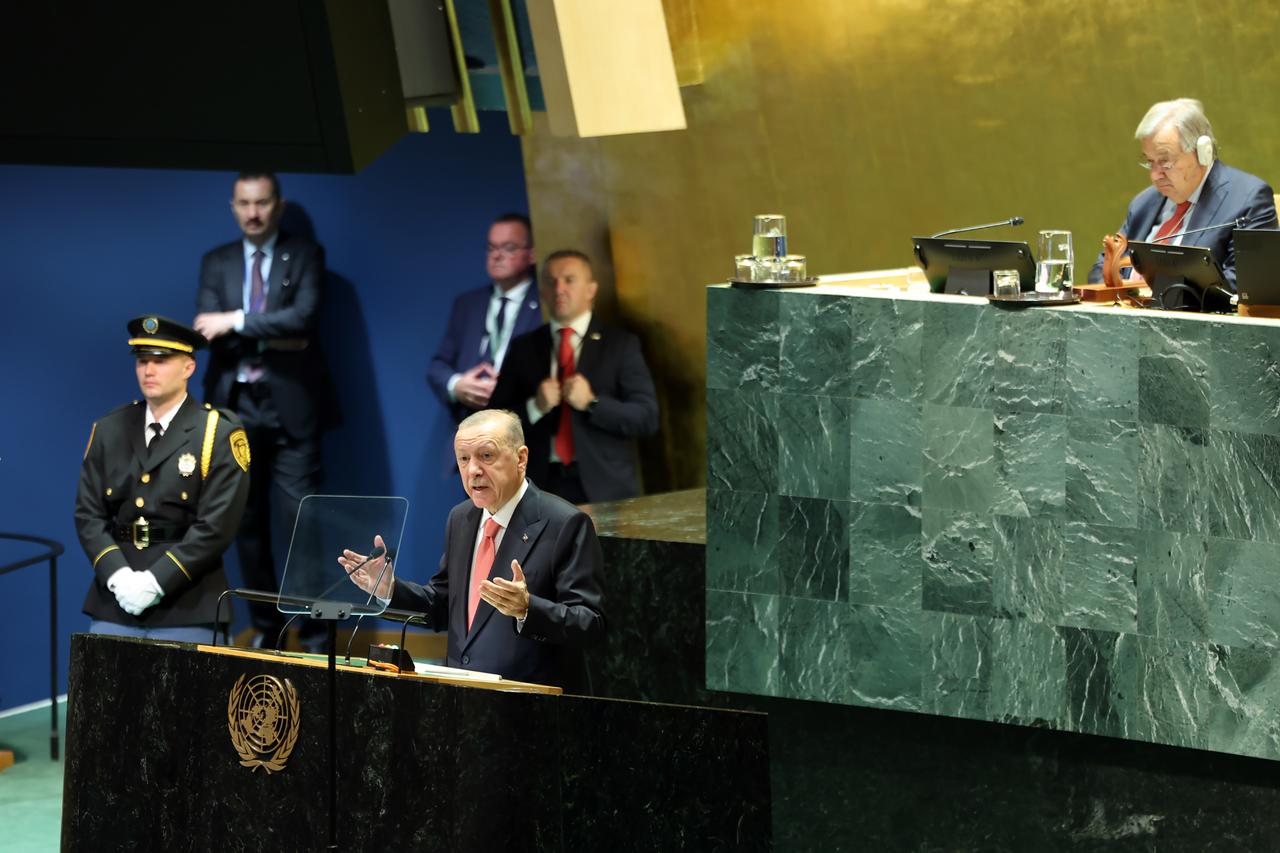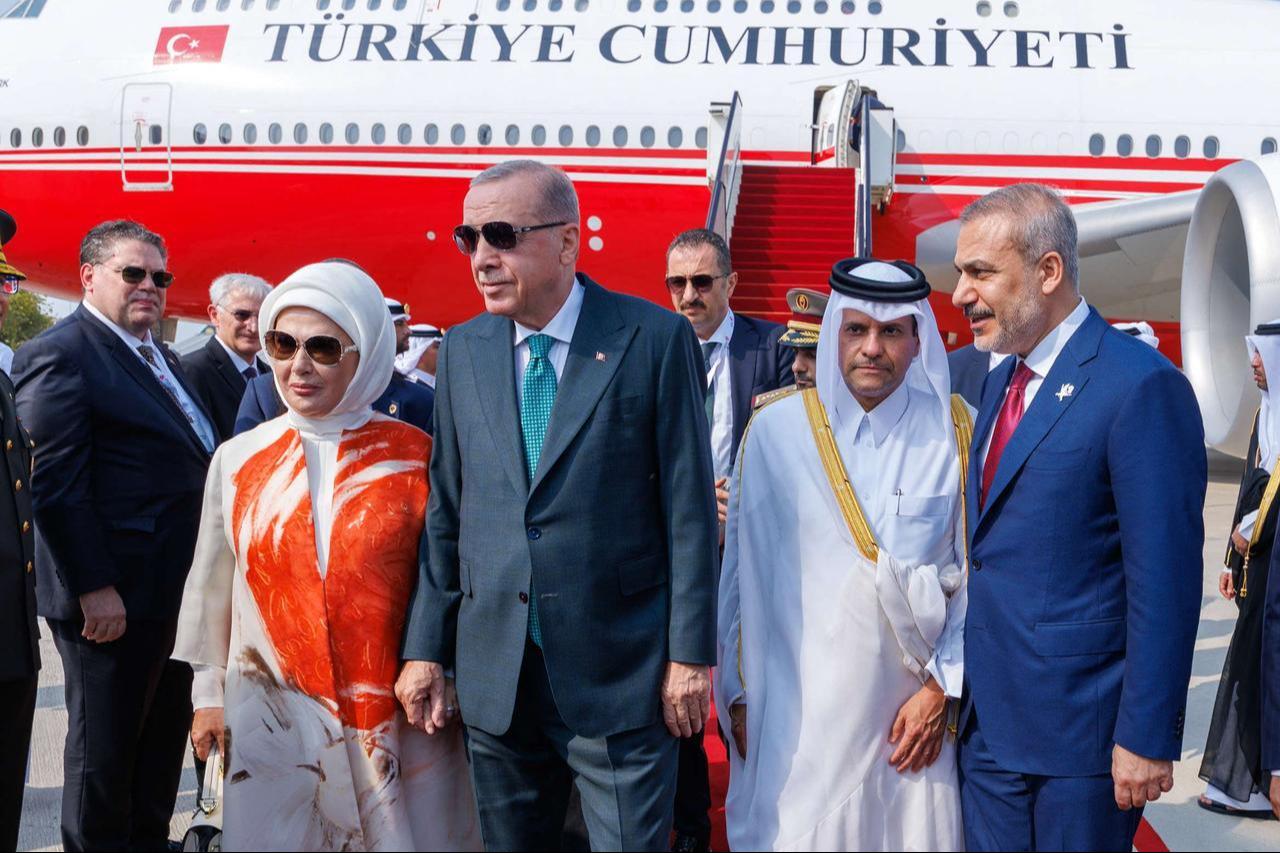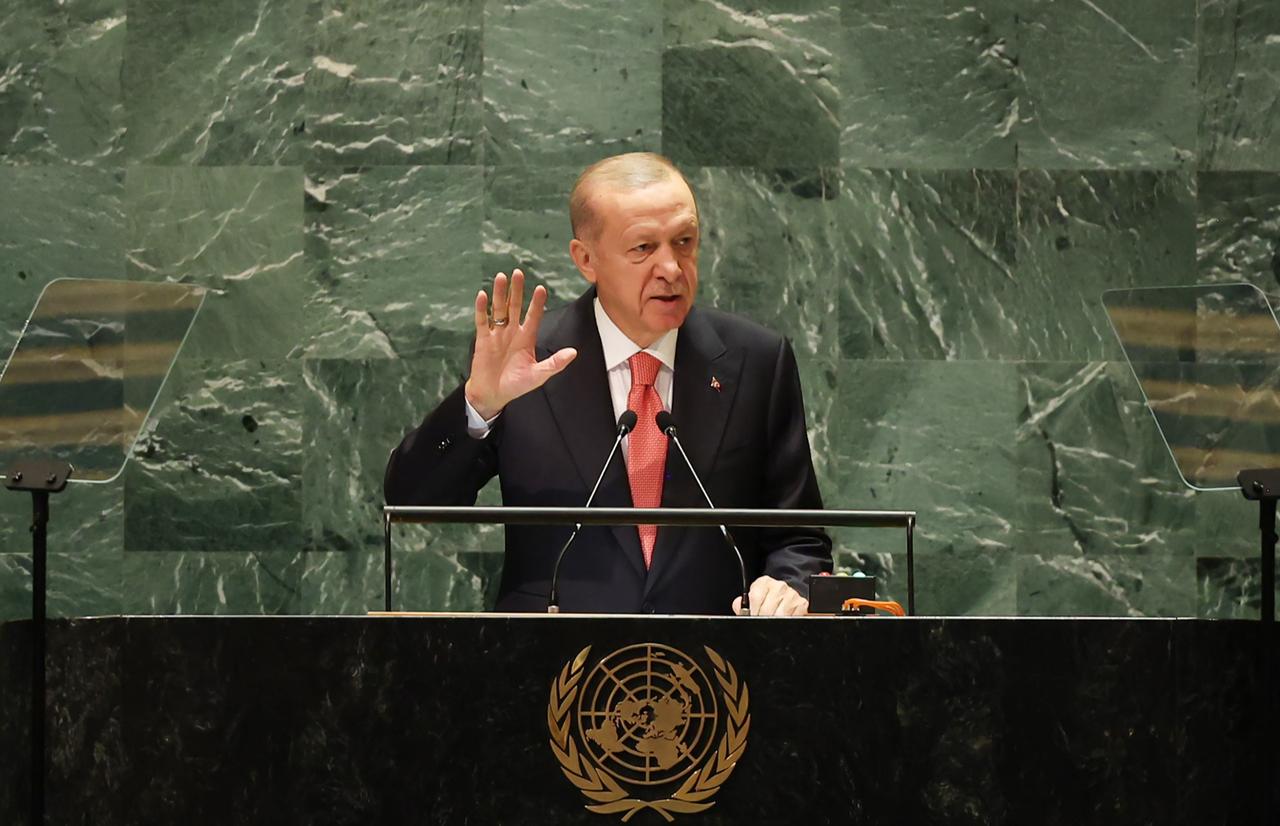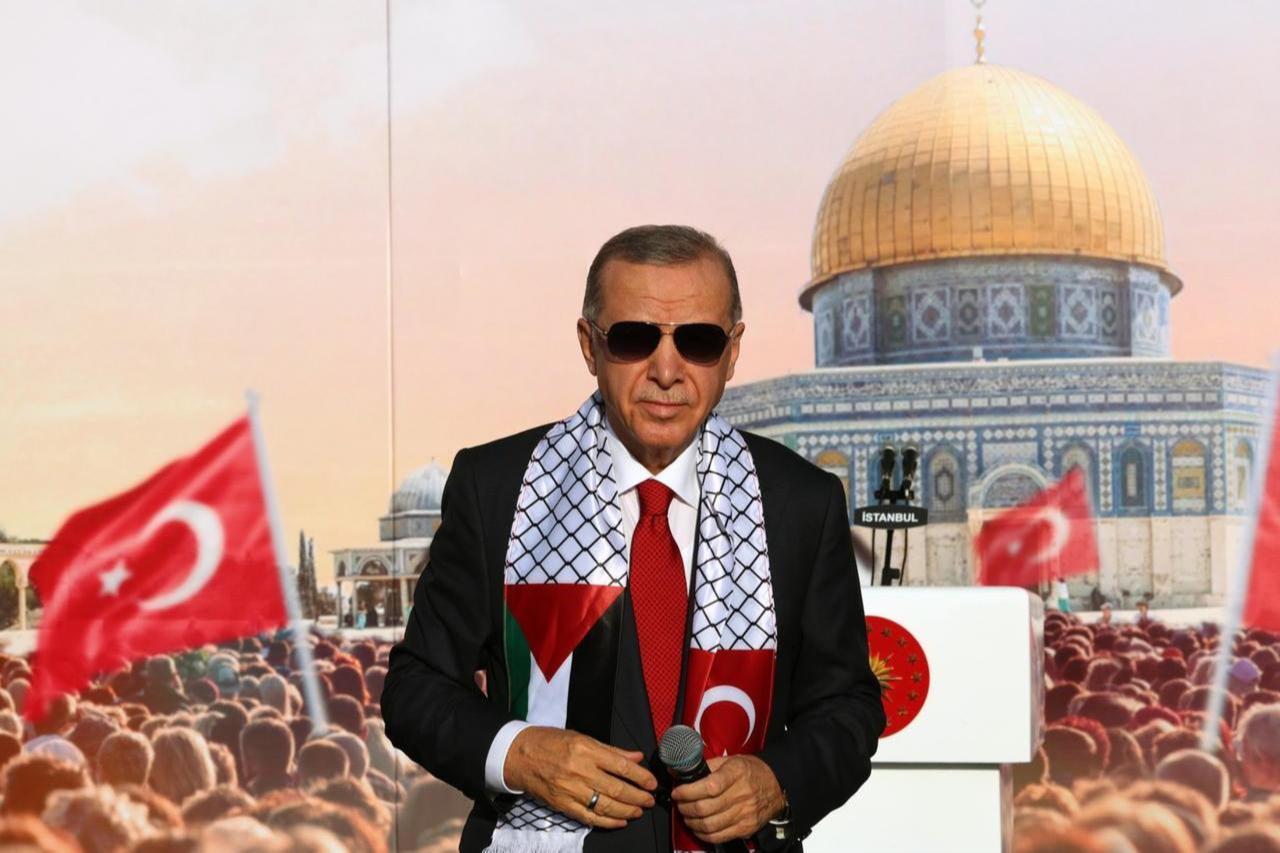
Turkish President Recep Tayyip Erdogan will deliver his 15th address to the United Nations General Assembly on Tuesday, continuing a tradition that began in 2005 when he first attended as prime minister.
According to data compiled by the Turkish news agency Anadolu, Erdogan made his U.N. debut at the 60th General Assembly in 2005. In his remarks, he called for a more democratic, transparent, and effective United Nations, describing it as essential for resolving disputes and guaranteeing world peace.
At the 62nd General Assembly in 2007, Erdogan emphasized counterterrorism, declaring: “A terrorist act occurring in any corner of the world is a crime against humanity that targets all of us. We condemn borderless terrorism, and as the prime minister of a country that has directly experienced the bitter reality of terrorism, I once again call here for solidarity and more effective cooperation against this threat to all humanity.”

In 2009, at the 64th session, he again pushed for reform of the U.N. structure. “We believe that a United Nations that is more representative, democratic, transparent, fair, and effective will contribute more to global peace and stability,” he said, adding that reform would remain incomplete without changes to the Security Council.
By 2011, at the 66th session, Erdogan addressed Syria, Libya, Somalia, and Palestine, while also condemning the occupation of Azerbaijani territories. “The unresolved Karabakh problem cannot be accepted,” he said.
Erdogan first addressed the General Assembly as president in 2014 at its 69th session, launching his enduring critique of the Security Council’s structure. “The world is bigger than five,” he said, a phrase that has since become central to his foreign policy rhetoric. He argued that the dominance of the five permanent Council members left the U.N. ineffective, citing failures in addressing conflicts in Palestine and Syria.
Two months after the July 15, 2016, coup attempt in Türkiye, Erdogan spoke at the 71st session, urging nations to act against the Fetullah Terrorist Organization (FETO). “If I am here before you today, it is thanks to the brave and noble stance of my nation,” he said, warning that FETO was a global threat.

In subsequent speeches, he focused on counterterrorism, Syria, Palestine, irregular migration, and climate change. At the 74th session in 2019, he displayed the image of Aylan Kurdi, the Syrian toddler whose death symbolized the refugee crisis, and showed a map illustrating the shrinking territory of Palestine since 1947.
In 2020, his 10th address was delivered via videoconference during the COVID-19 pandemic. “The world is bigger than five,” he repeated, arguing that the Security Council had failed to respond effectively to the crisis.
At the 76th session in 2021, Erdogan cited climate disasters around the world, warning of mass migration linked to droughts, food shortages, and extreme weather.

At the 77th General Assembly in 2022, Erdogan highlighted the Istanbul Agreement on the Black Sea Grain Corridor, negotiated with the U.N. and Ukraine to ensure grain shipments during the Russia-Ukraine war. “This agreement is one of the greatest achievements the U.N. has signed in recent years,” he said.
In 2023, at the 78th session, Erdogan called on the international community to recognize the independence of the Turkish Republic of Northern Cyprus (TRNC), urged neutrality from the U.N. Peacekeeping Force, and declared that “Karabakh is Azerbaijani territory.”
On Sept. 24, 2024, in his 14th address, Erdogan urged states to recognize Palestine, likening Israeli Prime Minister Benjamin Netanyahu to Hitler. “Just as Hitler was stopped 70 years ago through humanity’s alliance, Netanyahu and his murder network must also be stopped through humanity’s alliance,” he said.
He again accused the U.N. of failing its mission. “The values represented by the motto ‘The world is bigger than five’ are now more needed than ever,” he added.
Erdogan’s speech, which condemned Israel’s attacks in Gaza, drew wide coverage from international media.
The high-level week of the 80th U.N. General Assembly will open Sept. 23 in New York, with participation from 195 countries. Erdogan is expected to be the fourth speaker in the session.
His 15th address is expected to focus heavily on Gaza, the recognition of Palestine, and calls for international measures against Israel. He is also scheduled to speak at the Palestine Conference on Sept. 22 and the U.N. Climate Summit on Sept. 24, alongside bilateral meetings with world leaders.